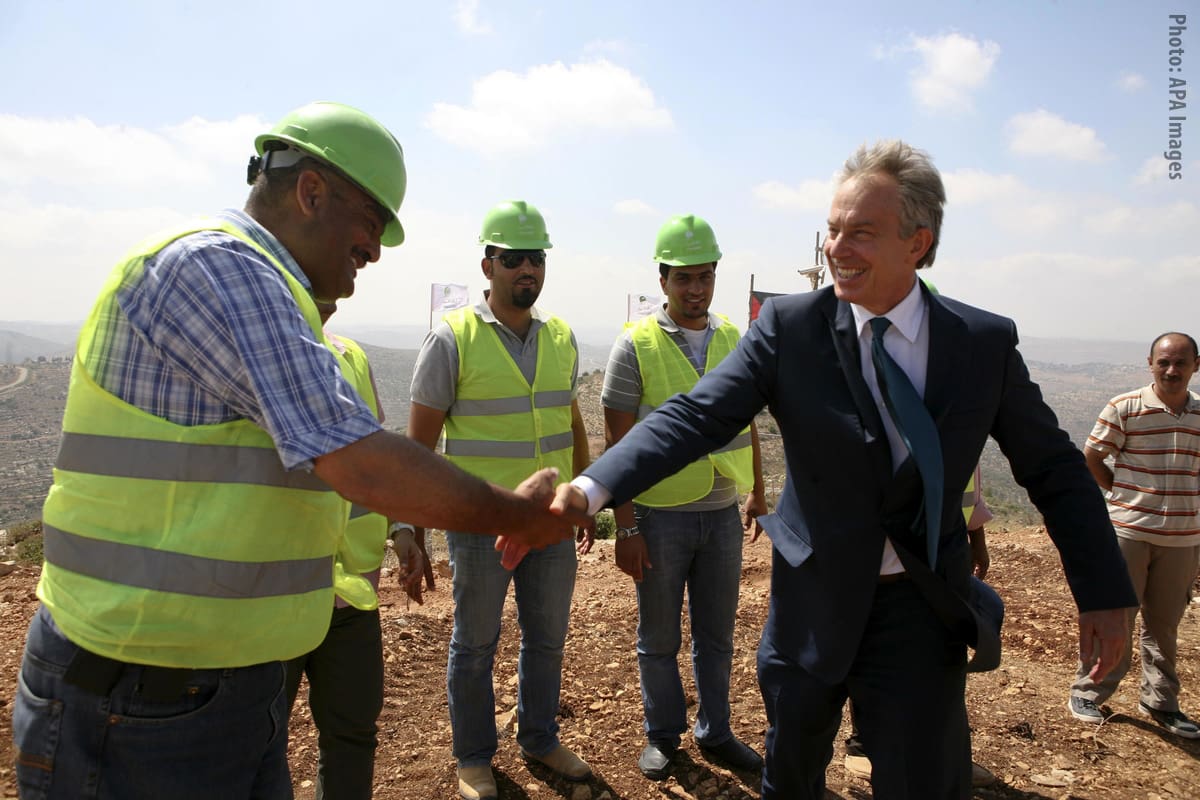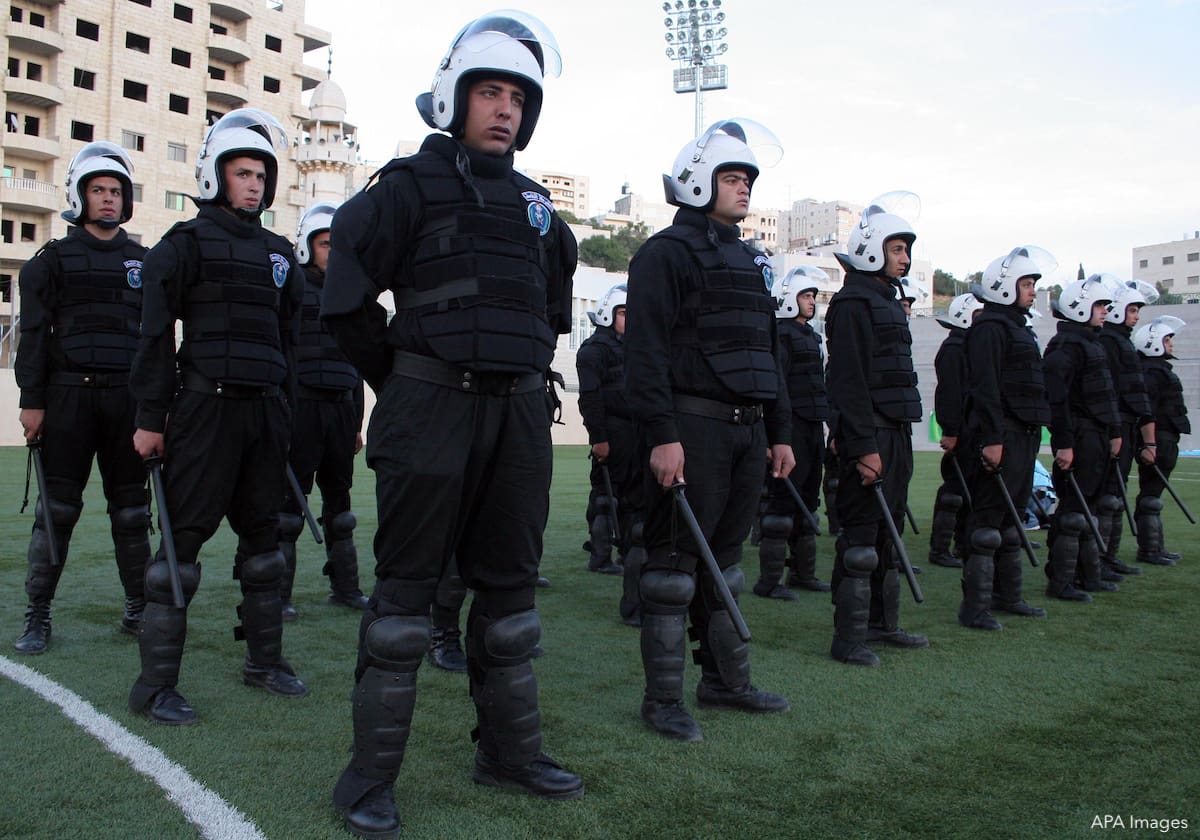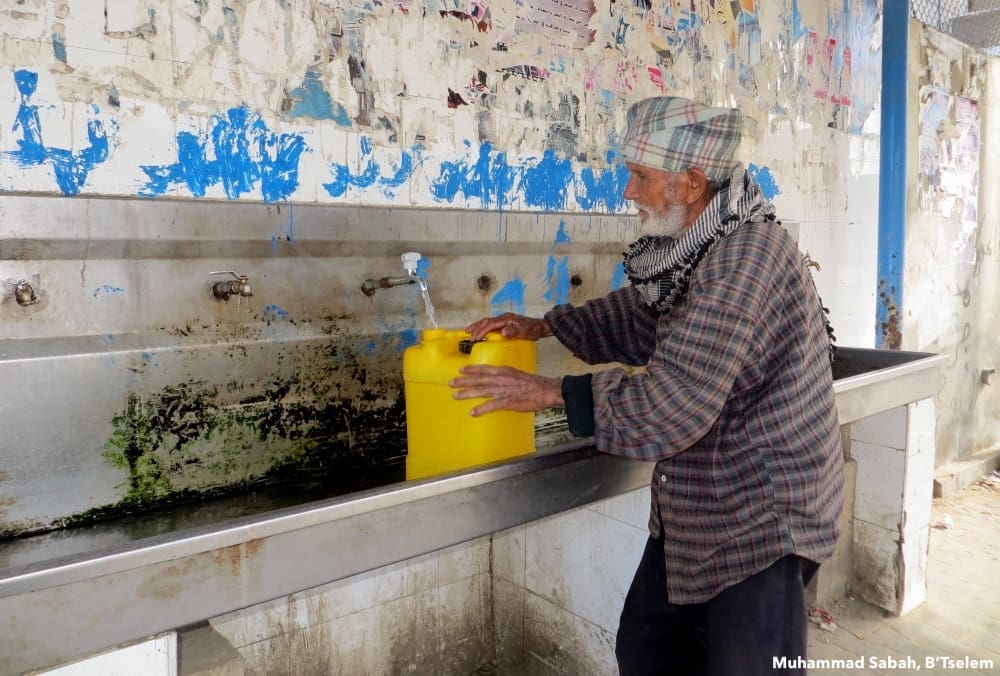Donor Complicity in Israel’s Violations of Palestinian Rights

International aid must not, legally, cause harm to those it aims to assist, but as Al-Shabaka policy member Nora Lester Murad points out, a number of donor practices may be leading to the violation of human rights. Murad outlines eight questions that must be asked about aid complicity and suggests important mechanisms for oversight of an industry that has just pledged another $5.4 billion for Gaza.
After Gaza, What Price Palestine’s Security Sector?

The Palestinian Authority’s security sector has grown faster than any other part of the government, potentially putting Palestine on track to a police state. With the unity government moving into Gaza after Israel’s terrible 51-day assault, Al-Shabaka Policy Member Sabrien Amrov and Program Director Alaa Tartir call for the urgent need to reform the donor-driven “reform” of a sector that only serves Israel’s colonization project. Read the policy brief or the executive summary.
Drying Palestine: Israel’s Systemic Water War

Israel’s targeting of water infrastructure during the latest Gaza onslaught has caught global attention, but much less noticed is the systemic water war that has been waged on Palestinian populations for decades. Tracing its three different battlefronts, Al-Shabaka Member and environmental researcher Muna Dajani looks at how military strikes, security programs, and permit systems have been destroying Palestinian water infrastructure and local resource-management systems, and calls for change.
Honor the Victims: Avoid Past Mistakes in Reconstructing Gaza

Israel’s third war on Gaza has been the worst. A greater death toll, the compounded effects of a seven-year-long siege, plus unaddressed damage from previous wars will make it far more difficult to reconstruct. Ahead of the international donors conference planned for September, Policy Advisor Omar Shaban sets out the short- and medium-term needs and argues that an end to the siege of Gaza and the participation of Gaza-based stakeholders is crucial if the reconstruction process is to succeed.
Palestinian Farmers: A Last Stronghold of Resistance

Israel’s brutal crackdowns on Palestinians living under its occupation dominate the news, but other longer-term trends are equally worrying. The Palestinian Authority is confiscating more and more land from Palestinian farmers in order to build industrial zones, which strips farmers of their right to grow their own food and further increases Palestinian dependency on Israel. Al-Shabaka Guest Author Vivien Sansour and Al-Shabaka Program Director Alaa Tartir argue that sustained community efforts are needed to preserve one of the most important elements of resistance that Palestinians have.
What Role for Law in the Palestinian Struggle for Liberation?

Palestinians are divided over whether law can serve a positive function in their quest for self-determination. Al-Shabaka Policy Advisor Noura Erakat argues that law’s value is wholly contingent on the broader political framework that gives it meaning. She proposes that Palestinians adopt a complementary approach that includes using the law when justice can be served and political avenues when the law itself entrenches unjust outcomes.
The Palestinian Capitalists That Have Gone Too Far

A powerful group of Palestinian capitalists is thriving in the occupied Palestinian territory even as most of the population is struggling to survive. Too often, they owe their wealth to economic collaboration with Israel. Drawing on recent research, Al-Shabaka Policy Member Tariq Dana analyzes the ways in which these “crony capitalists” influence policy, use indebtedness for social control, and normalize the occupation. Click below for the full brief or read the executive summary.
Activating Palestine’s UNESCO Membership

Palestinian leaders have not activated Palestine’s UNESCO membership despite the costly battle to join and even though it could help rebalance the skewed Israeli-Palestinian power dynamic. Al-Shabaka Guest Author Valentina Azarov and Policy Member Nidal Sliman review the assaults on Palestinian cultural heritage and set out the significant practical advantages of UNESCO membership, including reasserting sovereignty over Palestinian land and sea and obliging third states to hold Israel accountable.
Can Oslo’s Failed Aid Model Be Laid to Rest?

The Oslo Accords not only left the Palestinian people much worse off politically; they also devastated the economy of those living under Israeli occupation despite the $23 billion-plus that donors have poured into the territory. What’s worse, Wildeman and Tartir found no signs of a change in donor policies in their recent study.






